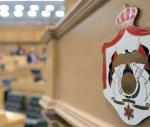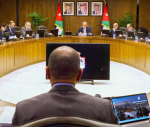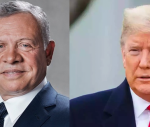You are here
Cold War faceoff?
Feb 25,2014 - Last updated at Feb 25,2014
Suddenly, the tables are turned and Russia’s strongman Vladimir Putin finds himself facing the same dilemma in Ukraine that the West has been confronting in Syria for three years.
The parallels are hard to miss, but so are the differences. One thing is for sure: the crises in both Syria and Ukraine intersect and the future of one may affect the outcome in the other.
The dramatic developments in Ukraine during the past few days have been seen as a blow to Russia and to Putin’s grand designs to string together a Eurasian alliance.
The Winter Olympics in Sochi were meant to showcase Russia’s resurgence as a political and economic powerhouse. But violence in Ukraine blotted Kremlin’s celebrations.
A three-month-old popular uprising against Moscow’s ally, president Victor Yanukovich, suddenly got out of hand. The opposition, which had occupied Independence Square, braving bitter elements and deadly crackdown by the police, refused to budge. And after bloody confrontations last week, which left at least 70 dead, Yanukovich finally gave in and signed an agreement that was backed by the European Union and Washington, effectively limiting his powers and calling for early presidential elections.
Russia did not recognise the agreement. But it was already too late.
Many in the opposition, including far-right parties and groups, wanted more. They charged the presidential palace as parliament sacked key officials in the government. Yanukovich fled and a new interim president was installed.
Ukraine was quickly jettisoning the Russian orbit and moving closer to Europe.
Like the beginnings of the Syrian uprising, the demonstrations in Kiev were largely peaceful. Despite strong backing from Putin, Yanukovich was unable to crush the demonstrators. The army chose not to get involved even when half of the country, in the eastern part with its Russian Orthodox majority, sided with the president.
In Syria, it was a different scenario altogether. There, the regime brutally cracked down on peaceful demonstrators and unleashed the army to destroy and punish rebellious villages and towns.
Russia’s position on the two crises was almost similar. It demonised the opposition by describing its members “extremists” and “terrorists”. It accused the West of interfering in the internal affairs of both countries, while extending its support to two unpopular governments.
It is not farfetched to say that Washington had indeed been “plotting” with the Ukrainian opposition, as some recent events have revealed. And it is also true that Moscow’s worries about a US-led Western expansion eastwards are not without basis.
In geopolitical terms, Ukraine is much more important than Syria. Moscow may have been beaten there for now, but it is unlikely that it will stand still and watch as the country inches closer to the West.
Washington and London have warned Moscow not to intervene militarily. European leaders called on the Kremlin to preserve the unity of Ukraine. Already pro-Russian supporters in the region of Crimea have raised the Russian national flag and called for secession from Ukraine.
Russia’s reaction today is one of anger and frustration. But surely it will not take this blow to its regional influence lightly.
US President Barak Obama was quick to underline the Russian link between Syria and Ukraine.
“I do think it is worth noting that you have in this situation in one country that has been a client state of Russia and another whose government is currently being supported by Russia whose people obviously have a very different view and vision for their country,” he said.
But he refused to admit that the showdown in Ukraine and Syria had become “as some Cold War chessboard in which we’re in competition with Russia”.
That is an understatement. In fact, divergence in views and policies, especially over Syria, marred international politics for the last three years and created dangerous fissures in the Middle East.
The debacle in Ukraine will be seen as Western meddling in Moscow’s backyard, and regardless of Putin’s reaction on that issue, recent developments will only harden his position on Syria.
On Saturday, the UN Security Council unanimously adopted a humanitarian resolution on Syria. Moscow’s reservations were taken into account in the draft resolution. But although the Syrian government said it would adhere to it, the regime escalated its indiscriminate bombings of civilians in Daraa, Aleppo, Yabrud and others.
The situation in Syria today is different from Ukraine’s. The Syrian regime is already suspected of committing crimes against humanity and war crimes against its own people. Encouraged by the Russians, it has resisted pressure to make compromises in Geneva a few weeks ago. There are no signs that a political solution to end the conflict will be reached soon. The regime of Bashar Assad is bent to fight until the bitter end.
As for Ukraine, the crisis is not over yet and the struggle there will continue. Very soon we will see Russia’s reaction, which may lead to fresh confrontations and possible military intervention to protect Russians in the eastern part of the country.
For the Russians, the opposition has violated its agreement with Yanukovich, who is now wanted for murder, and has usurped his power.
Russia’s apparent defeat in Ukraine will reflect on its policies in Syria and elsewhere. That will pose a fresh challenge to Washington and its Western and regional allies. Putin will certainly retaliate by adopting a hardline position on Syria.
The writer is a journalist and political commentator based in Amman.













